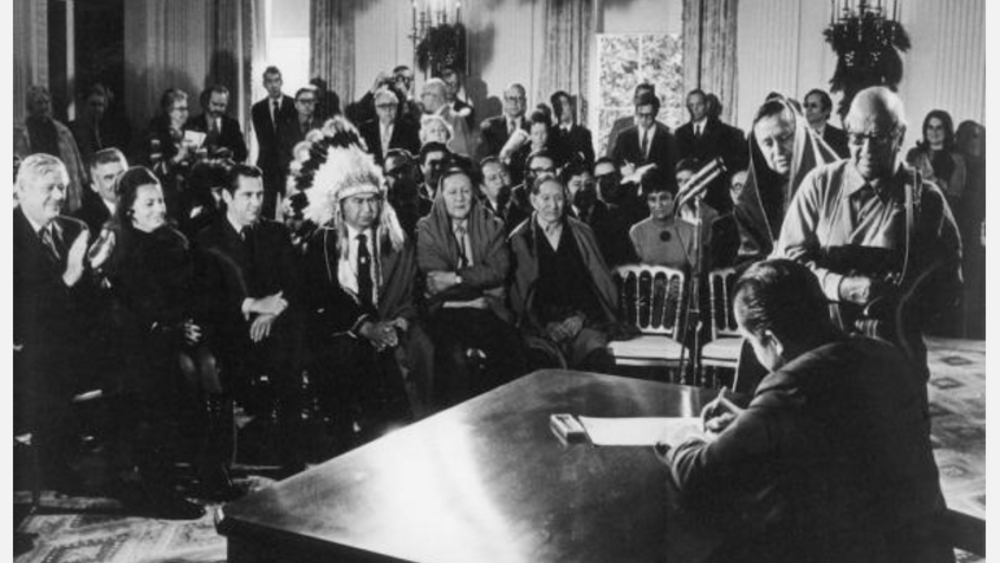If ever a concept grabbed hold of hearts and minds in Indian country in the past couple decades surely it would be that of sovereignty. Native people talk about it with reverence, demanding that it be respected by the federal government, and expect their tribal governments to assert it. Even the federal government speaks the language of sovereignty when it claims to uphold the “unique government-to-government relationship” it has with tribes...
Additional Information
Gilio-Whitaker, Dina. "Indian Self-Determination and Sovereignty." Indian Country Today. January 17, 2013. Opinion. (https://ictnews.org/archive/indian-self-determination-and-sovereignty, accessed July 24, 2023)



